6 Sources that May Name Your Ancestors’ Parents
Have you reached a dead end on one branch of your family tree–you can’t find the parents’ names? Check out these sources for finding ancestors’ parents.
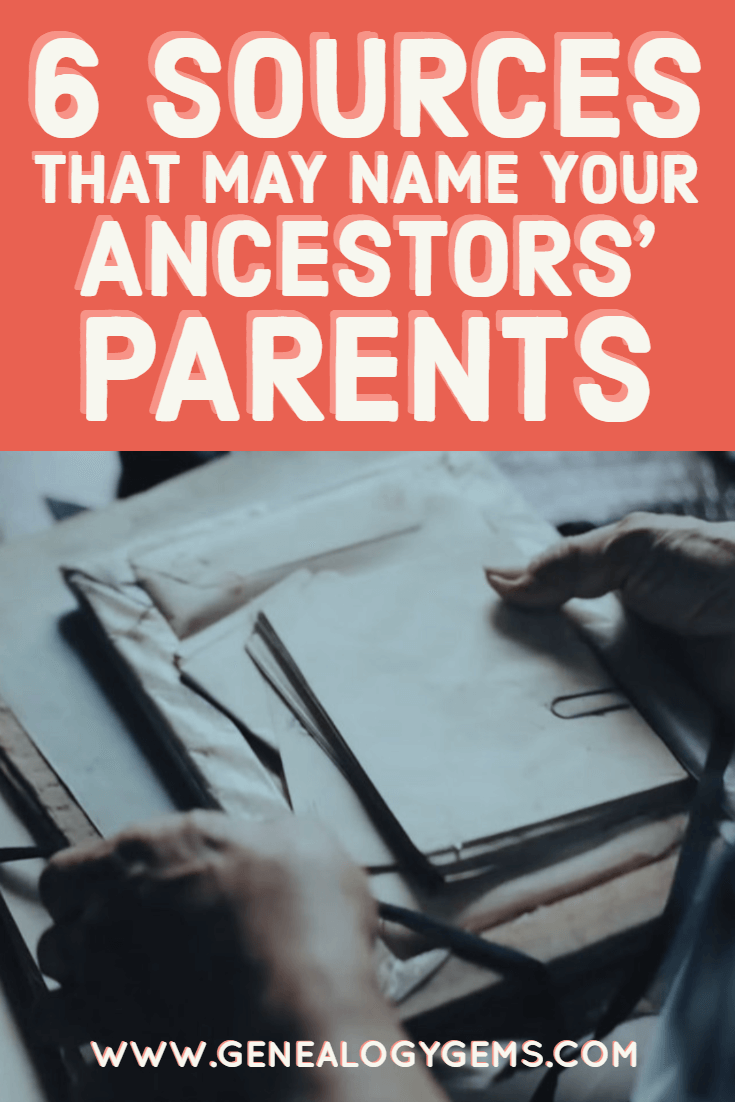
Recently Genealogy Gems podcast listener Trisha wrote in with this question about finding marriage license applications online. She hoped the original application would name the groom’s parents. Unfortunately, her search for the applications came up dry. So, she asked, “Are there other documents that would have his parents names listed on them?”
Here’s a brainstorm for Trisha and everyone else who is looking for an ancestor’s parents’ names (and aren’t we all!).
6 Record Sources that May Name Your Ancestors’ Parents
1. Civil birth records. I’ll list this first, because civil birth records may exist, depending on the time period and place. But in the U.S. they are sparse before the Civil War and unreliably available until the early 1900s. So before a point, birth records–which will almost always name at least one parent–are not a strong answer. Learn more about civil birth records in my free Family History Made Easy podcast episode #25.
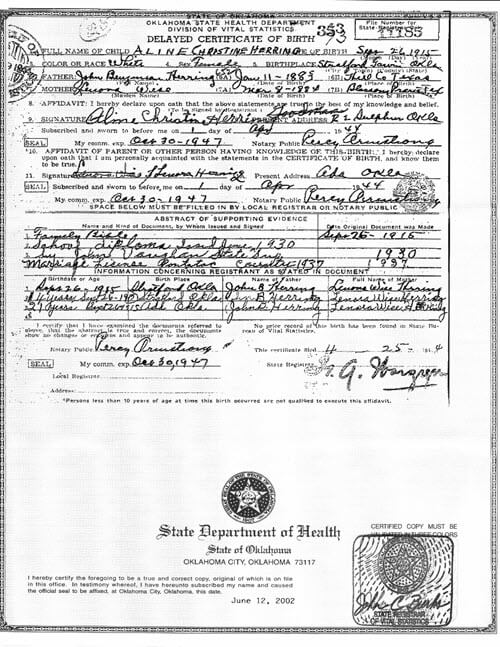
2. Marriage license applications. Trisha’s idea to look for a marriage license application was a good one. They often do mention parents’ names. But they don’t always exist: either a separate application form was never filled out, or it didn’t survive. Learn more about the different kinds of marriage documents that may exist in the Family History Made Easy podcast episode #24.
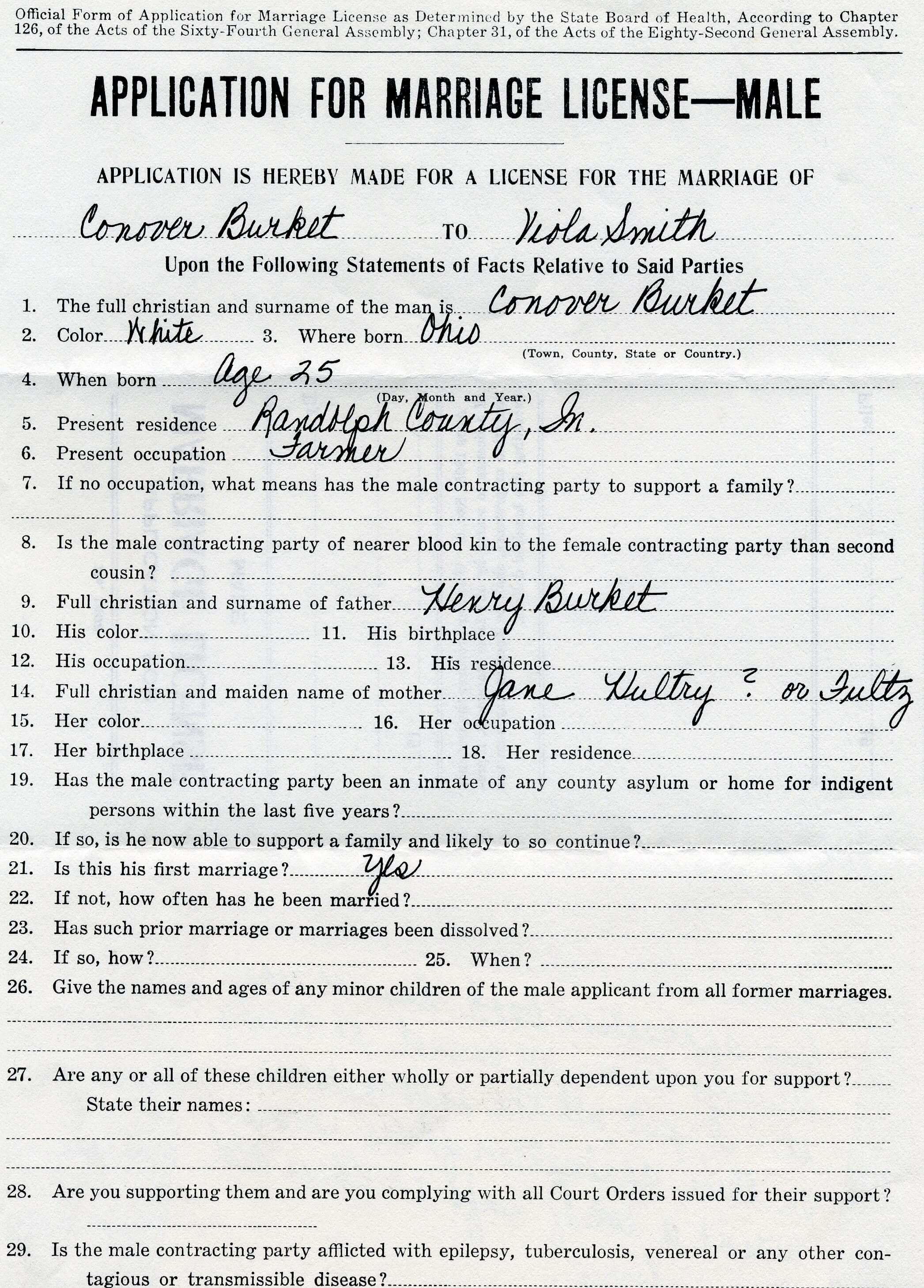
3. Obituaries. Obituaries or death notices are more frequently found for ancestors who died in the late 1800s or later. Thanks to digitized newspapers, it’s getting SO much easier to find ancestors’ obituaries in old newspapers. My book How to Find Your Family History in Newspapers is packed with practical tips and inspiring stories for discovering your family’s names in newsprint. Millions of newly-indexed obituaries are on FamilySearch (viewable at GenealogyBank). Get inspired with this list of 12 Things You Can Learn from Obituaries!
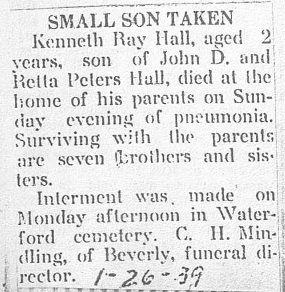
4. Social Security Applications (U.S.). In the U.S., millions of residents have applied for Social Security numbers and benefits since the 1930s. These applications request parents’ names. There are still some privacy restrictions on these, and the applications themselves are pricey to order (they start at $27). But recently a fabulous new database came online at Ancestry that includes millions of parents’ names not previously included in public databases. I blogged about it here. Learn more about Social Security applications (and see what one looked like) in the show notes for my free Family History Made Easy podcast episode #4.
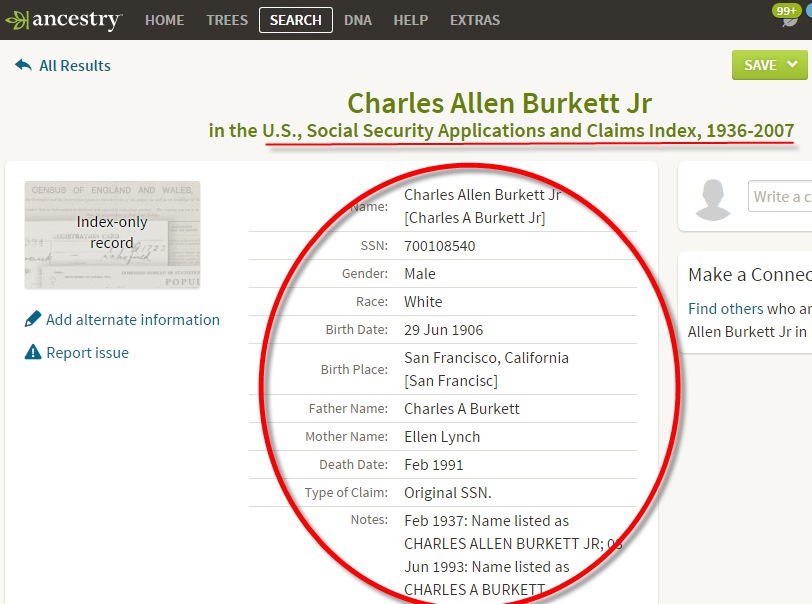
5. Baptismal records. Many churches recorded children’s births and/or the baptisms of infants and young children. These generally name one or both parents. Millions of church records have come online in recent years. Learn more about birth and baptism records created by churches in the Family History Made Easy Podcast Episode #26. Click these links to read more about baptismal records in Quebec and Ireland.
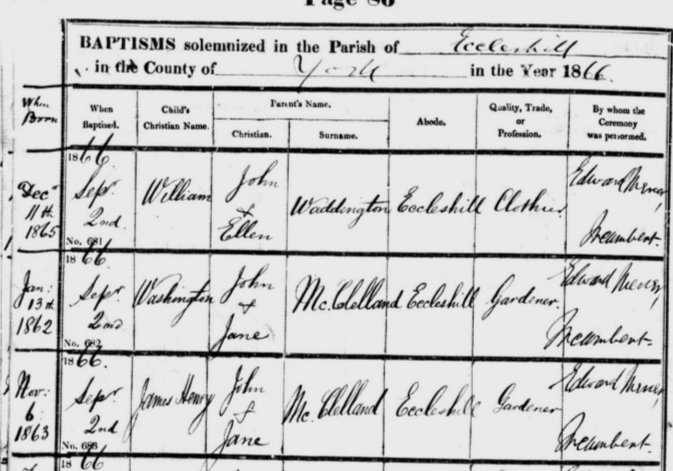
6. Siblings’ records. If you know the name of an ancestor’s sibling, look for that sibling’s records. I know of one case in which an ancestor appeared on a census living next door to a possible parent. Younger children were still in the household. A search for one of those younger children’s delayed birth record revealed that the neighbor WAS his older sister: she signed an affidavit stating the facts of the child’s birth.
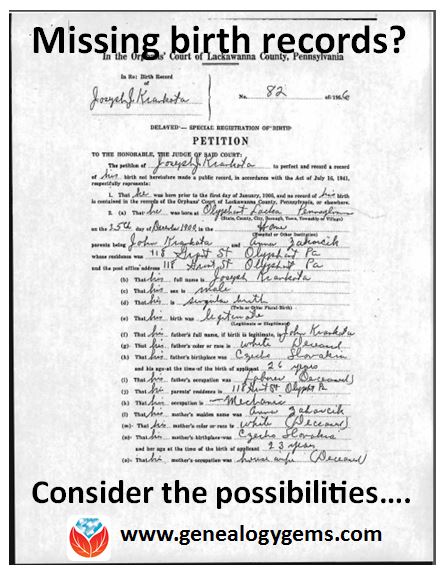
Thanks for sharing this list with anyone you know who wants to find their ancestors’ parents!
More Genealogy Gems on Finding Your Ancestors in Old Records
Missing Birth Record? Here’s What You Can Do to Track it Down
Try These 2 Powerful Tools for Finding Genealogy Records Online
Finding Ancestors in Courthouse Records: Research Tips
(Premium website membership required)
About the Author: Lisa Louise Cooke is the producer and host of the Genealogy Gems Podcast, an online genealogy audio show and app. She is the author of the books The Genealogist’s Google Toolbox, Mobile Genealogy, How to Find Your Family History in Newspapers, and the Google Earth for Genealogy video series, and an international keynote speaker.
This article was originally posted on November 3, 2015 and updated on April 19, 2019.




